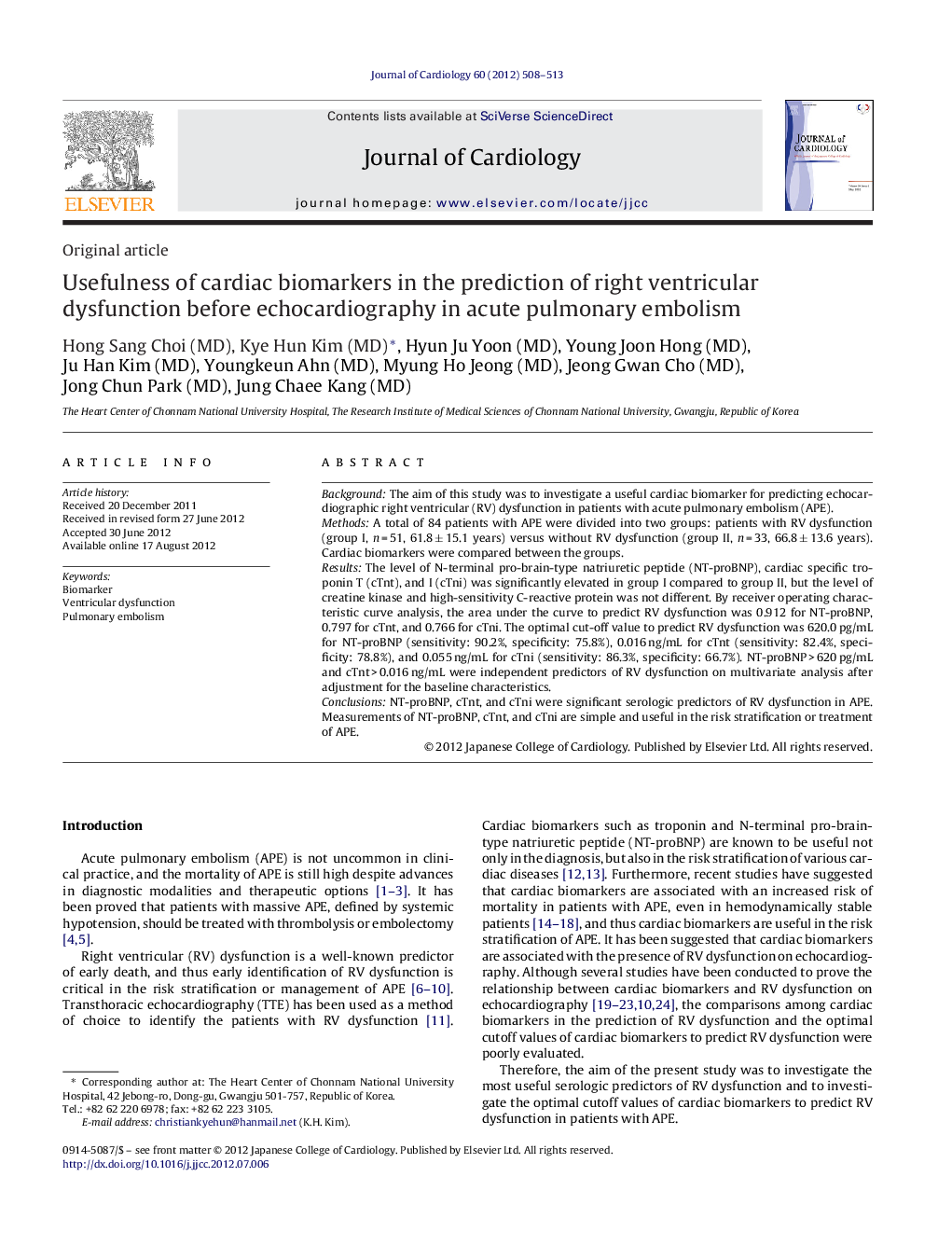| Article ID | Journal | Published Year | Pages | File Type |
|---|---|---|---|---|
| 2963091 | Journal of Cardiology | 2012 | 6 Pages |
BackgroundThe aim of this study was to investigate a useful cardiac biomarker for predicting echocardiographic right ventricular (RV) dysfunction in patients with acute pulmonary embolism (APE).MethodsA total of 84 patients with APE were divided into two groups: patients with RV dysfunction (group I, n = 51, 61.8 ± 15.1 years) versus without RV dysfunction (group II, n = 33, 66.8 ± 13.6 years). Cardiac biomarkers were compared between the groups.ResultsThe level of N-terminal pro-brain-type natriuretic peptide (NT-proBNP), cardiac specific troponin T (cTnt), and I (cTni) was significantly elevated in group I compared to group II, but the level of creatine kinase and high-sensitivity C-reactive protein was not different. By receiver operating characteristic curve analysis, the area under the curve to predict RV dysfunction was 0.912 for NT-proBNP, 0.797 for cTnt, and 0.766 for cTni. The optimal cut-off value to predict RV dysfunction was 620.0 pg/mL for NT-proBNP (sensitivity: 90.2%, specificity: 75.8%), 0.016 ng/mL for cTnt (sensitivity: 82.4%, specificity: 78.8%), and 0.055 ng/mL for cTni (sensitivity: 86.3%, specificity: 66.7%). NT-proBNP > 620 pg/mL and cTnt > 0.016 ng/mL were independent predictors of RV dysfunction on multivariate analysis after adjustment for the baseline characteristics.ConclusionsNT-proBNP, cTnt, and cTni were significant serologic predictors of RV dysfunction in APE. Measurements of NT-proBNP, cTnt, and cTni are simple and useful in the risk stratification or treatment of APE.
